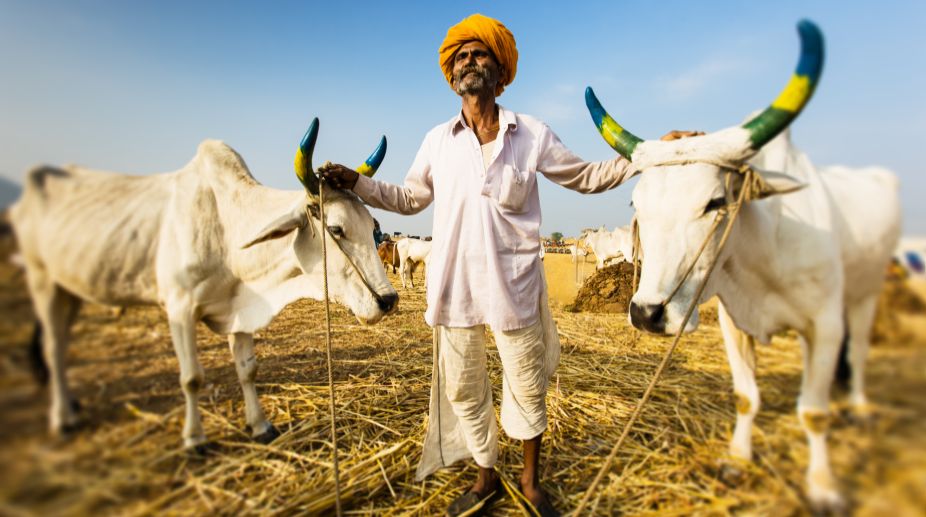NABARD’s solar project helps tribal families in Alipurduar
The project, sanctioned during February, was completed in August.

(Photo: Getty Image)
The National Bank for Agriculture and Rural Development (Nabard) on April 11 described farm loan waivers as a “moral hazard” and said such facilities should be targeted only to the needy.
“Debt waivers create a moral hazard from a credit repayment perspective and we cannot have omnibus waivers,” chairman Harsh Kumar Bhanwala told reporters here, a week after UP government announced a Rs.36,000 crore farm loan waiver package.
Advertisement
With demands for similar measures in other states like Haryana, Maharashtra and Tamil Nadu, Bhanwala said there is a need to look at the moral hazards which such schemes create and targeting such schemes to the needy farmers.
Advertisement
He said every time a debt waiver is announced, it is taxpayers' money which is used to help bail out the farmers.
The comments come days after Reserve Bank Governor Urjit Patel also expressed strong displeasure over such measures.
Nabard on April 11 reported a 4.24 per cent increase in its post tax net for 2016-17 at Rs.2,631 crore, and a 16.27 per cent expansion in its outstanding loans at Rs.3.08 trillion.
Bhanwala said the development finance institution, which primarily refinances banks' agri loans, feels that the financial sector is set to surpass the Rs.9 trillion agri loans target for fiscal 2017 set by government and will repeat the performance in fiscal 2018 by exceeding the Rs.10 trillion target.
Nabard is laying extra focus on long-term irrigation fund and expects to deploy up to Rs.25,000 crore for this purposes through identified projects (up from Rs.9,000 crore in fiscal 2017) and also to mitigate climate change impact, Bhanwala said, adding the company will also be focusing on micro-irrigation sector this year, and plans to deploy up to Rs.2,000 crore in it.
He said share of long-term loans has risen to 24 per cent of its total loanbook now from 19 per cent two years ago, and Nabard will continue to focus on increasing this number.
Its outstanding borrowing increased to Rs.80,000 crore from Rs.60,000 crore in the year-ago period and Bhanwala said there would be an increase of Rs.15,000 crore in the outstanding borrowing in fiscal 2018.
Nabard was able to recover a few of its bad loans in the just concluded financial year and consecutively the non- performing assets ratio has come down to 0.07 per cent.
With the Centre having announced a target to double farmers' incomes in the next five years, Nabard is working with the states to develop action plans to ensure that the targets are met, he said, adding a pilot project of working closely with the communities towards this purpose is being implemented in seven states.
As part of the pilot project, it will be working in 10 villages of a district having over 1,000 farmers each in every state and the job will start with identifying the base income structures in each states.
On demonetisation, Bhanwala said there was a jump in repayments in the initial days but credit demanded was impacted later. He, however, added despite this, the Rs.9 trillion target has been met.
In a first, Nabard has also started operating a financial inclusion fund and sanctioned installation of 2.07 lakh point of sale machines for different banks since February, he said, adding they will be deployed soon.
For villages which lack mobile connectivity and also power shortages, it has allocated Rs.308 crore towards this purpose.
Advertisement